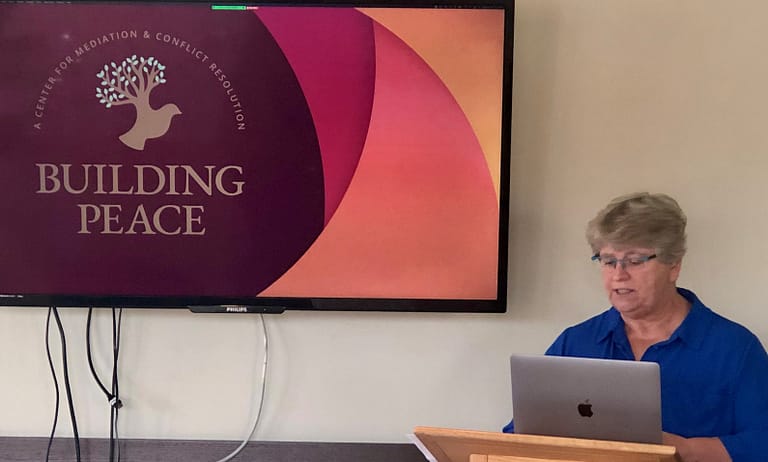Lyle Seger and Lisa Larson spoke about the new Douglas County restorative justice program. Lyle is a mediator and restorative justice facilitator for the Center for Conflict Resolution and a founder of the nonprofit Building Peace. Lisa is a City Commissioner and works in conflict resolution and mediation. She is also affiliated with Building Peace.
Restorative justice is a concept that emerged from indigenous communities in North America and New Zealand. European settlers had a more narrow concept of justice that involved trial, conviction and punishment. Restorative justice attempts to find a more satisfying approach to address the harm done in a crime. The goal is to identify satisfactory retribution, resolve conflict, and promote healing.
Started in 2020, the restorative justice program in Douglas County has a staff of five mediators who work with lawyers, court representatives, crime victims, perpetrators, and community members impacted by a crime.
The District Attorney makes the determination of a case’s eligibility for restorative justice. It is a voluntary process and is available for less serious offenses and younger offenders. Perpetrators are required to address the harm done face to face with victims and stakeholders in the larger community. Completion of the process results in expunging of the criminal record.
Restorative justice reduces the number of young people going to jail. The recidivism rate is under 50 per cent, and some 70 per cent of victims are satisfied with the process. The new program is primarily funded by grants.
At the end of the day, restorative justice focuses on how a crime impacts on the victim and the community. The process works to promote healing, build peaceful relationships, and a stronger and more just community.

